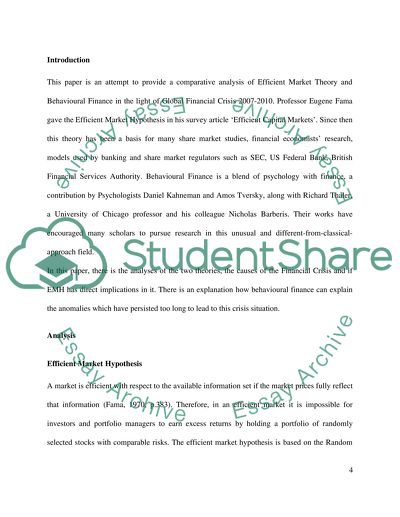Cite this document
(“Efficient Market Theory & Behavioural Finance with regard to Financial Essay”, n.d.)
Efficient Market Theory & Behavioural Finance with regard to Financial Essay. Retrieved from https://studentshare.org/finance-accounting/1433548-efficient-market-theory-behavioural-finance-with-regard-to-financial-crisis-2007-2010
Efficient Market Theory & Behavioural Finance with regard to Financial Essay. Retrieved from https://studentshare.org/finance-accounting/1433548-efficient-market-theory-behavioural-finance-with-regard-to-financial-crisis-2007-2010
(Efficient Market Theory & Behavioural Finance With Regard to Financial Essay)
Efficient Market Theory & Behavioural Finance With Regard to Financial Essay. https://studentshare.org/finance-accounting/1433548-efficient-market-theory-behavioural-finance-with-regard-to-financial-crisis-2007-2010.
Efficient Market Theory & Behavioural Finance With Regard to Financial Essay. https://studentshare.org/finance-accounting/1433548-efficient-market-theory-behavioural-finance-with-regard-to-financial-crisis-2007-2010.
“Efficient Market Theory & Behavioural Finance With Regard to Financial Essay”, n.d. https://studentshare.org/finance-accounting/1433548-efficient-market-theory-behavioural-finance-with-regard-to-financial-crisis-2007-2010.


